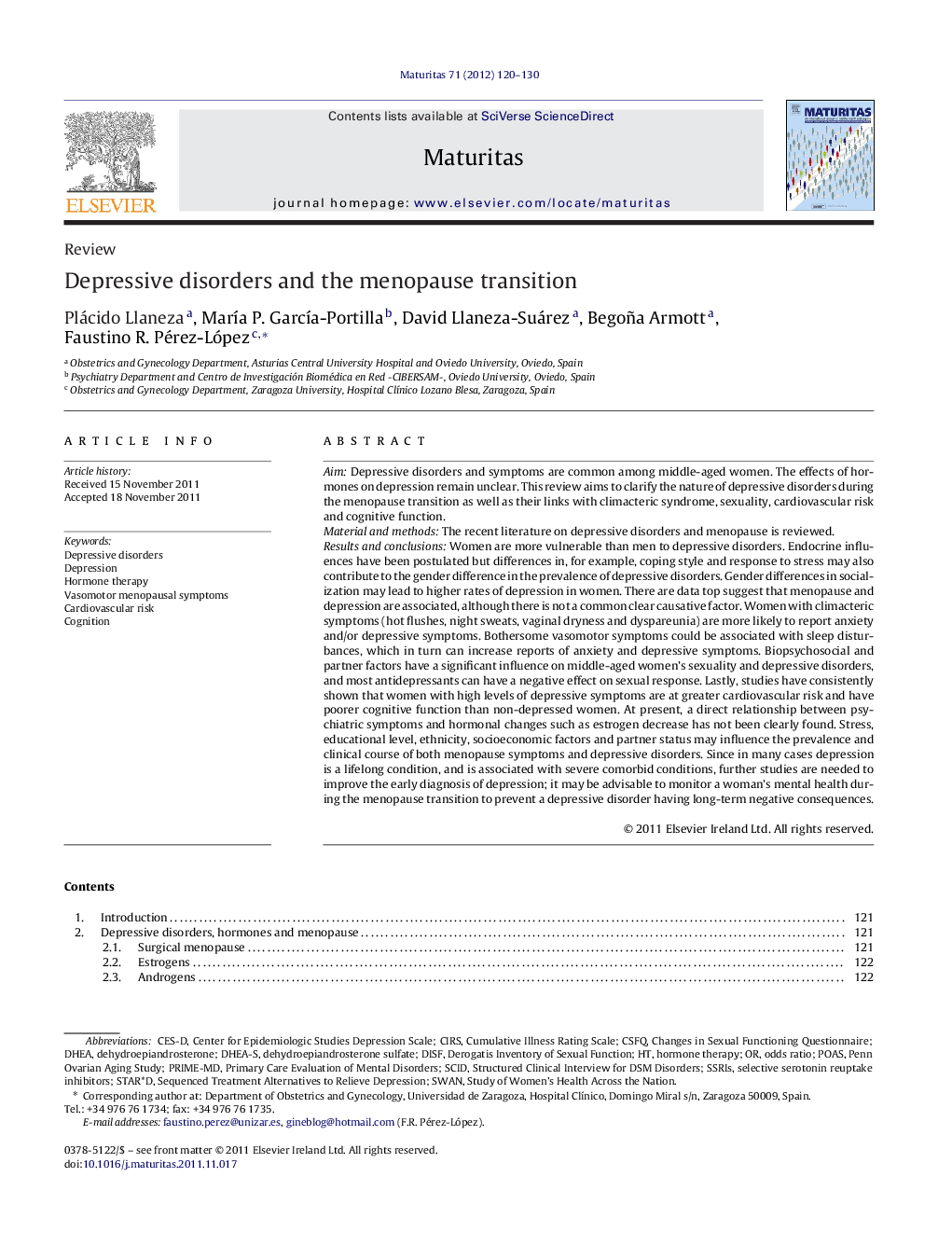| کد مقاله | کد نشریه | سال انتشار | مقاله انگلیسی | نسخه تمام متن |
|---|---|---|---|---|
| 1917434 | 1047903 | 2012 | 11 صفحه PDF | دانلود رایگان |

AimDepressive disorders and symptoms are common among middle-aged women. The effects of hormones on depression remain unclear. This review aims to clarify the nature of depressive disorders during the menopause transition as well as their links with climacteric syndrome, sexuality, cardiovascular risk and cognitive function.Material and methodsThe recent literature on depressive disorders and menopause is reviewed.Results and conclusionsWomen are more vulnerable than men to depressive disorders. Endocrine influences have been postulated but differences in, for example, coping style and response to stress may also contribute to the gender difference in the prevalence of depressive disorders. Gender differences in socialization may lead to higher rates of depression in women. There are data top suggest that menopause and depression are associated, although there is not a common clear causative factor. Women with climacteric symptoms (hot flushes, night sweats, vaginal dryness and dyspareunia) are more likely to report anxiety and/or depressive symptoms. Bothersome vasomotor symptoms could be associated with sleep disturbances, which in turn can increase reports of anxiety and depressive symptoms. Biopsychosocial and partner factors have a significant influence on middle-aged women's sexuality and depressive disorders, and most antidepressants can have a negative effect on sexual response. Lastly, studies have consistently shown that women with high levels of depressive symptoms are at greater cardiovascular risk and have poorer cognitive function than non-depressed women. At present, a direct relationship between psychiatric symptoms and hormonal changes such as estrogen decrease has not been clearly found. Stress, educational level, ethnicity, socioeconomic factors and partner status may influence the prevalence and clinical course of both menopause symptoms and depressive disorders. Since in many cases depression is a lifelong condition, and is associated with severe comorbid conditions, further studies are needed to improve the early diagnosis of depression; it may be advisable to monitor a woman's mental health during the menopause transition to prevent a depressive disorder having long-term negative consequences.
Journal: Maturitas - Volume 71, Issue 2, February 2012, Pages 120–130